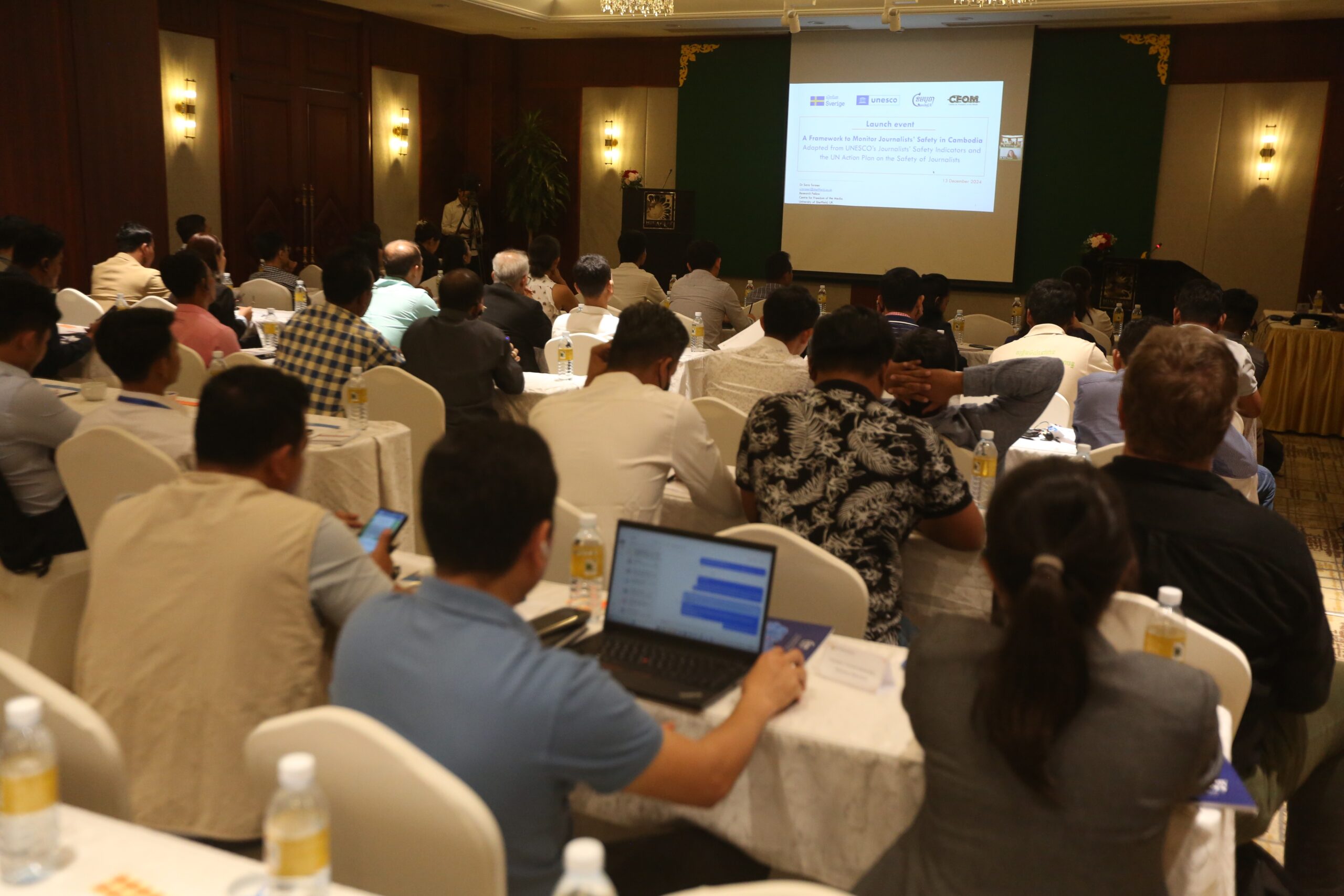A new report documenting threats and attacks against journalists in Cambodia applies a human rights-based monitoring framework developed by CFOM-researcher Sara Torsner.
Covering the first quarter of 2025, the report is published by the Cambodian Journalists Alliance Association (CamboJA), an independent, membership-based network of journalists and media professionals in Cambodia

Photo Credit: CamboJA
The report details ongoing challenges to free and independent journalism in the countryhighlighting the persistent use of arbitrary legal threats and actions aimed at intimidating journalists and silencing critical reporting. During the reporting period CamboJA recorded 14 incidents of human rights violations against journalists. These violations include physical assaults, legal harassment, censorship, and other forms of interference with journalistic work.
Topics such as land disputes, corruption, environmental issues, and crime were identified as particularly dangerous for journalists to cover. The documented consequences faced by journalists range from restrictions on movement and forced deletion of materials to psychological distress and coerced confessions.
A lack of accountability and legal redress remains a central concern, reinforcing a climate of impunity and weakening protections for press freedom in Cambodia.
The methodology underpinning the report is the result of a research collaboration between CamboJA and Sara Torsner to develop a systematic framework for documenting human rights violations targeting journalists and media outlets in Cambodia. The framework includes a classification scheme – aligned with human rights terminology – designed to support consistent and structured data collection.
Drawing on international human rights standards, including in the UN Action Plan on the Safety of Journalists and the Issue of Impunity, UNESCO’s Journalists’ Safety Indicators and Sustainable Development Goal (SDG) Indicator 16.10.1, the framework promotes a gender-sensitive and context-specific approach. It was shaped through a participatory, consultative process involving a diverse community of international, regional, and national experts.
The research collaboration was funded by UNESCO’s International Programme for the Development of Communication (IPDC) and the framework was officially launched on 13 December at an event in Phnom Penh, Cambodia.
This latest quarterly report is the first to implement the new methodology, offering critical insight into the conditions faced by journalists and underscoring the urgent need for stronger protections and accountability mechanisms.
Sara Torsner is Project Lead for the ESRC-funded project “Profiling impunity for human rights violations against journalists: A systematic account of state-based harm and practices of resistance”
